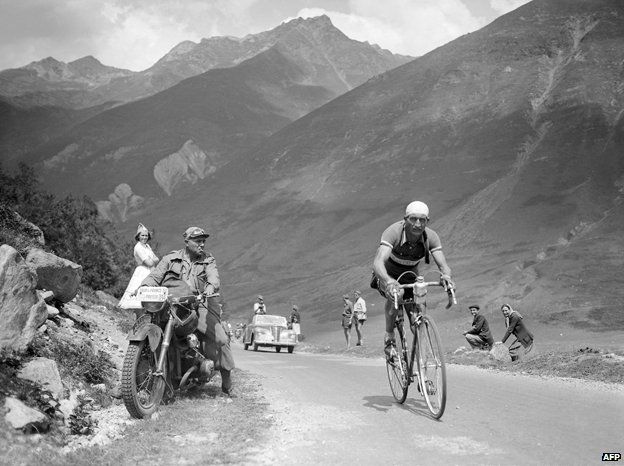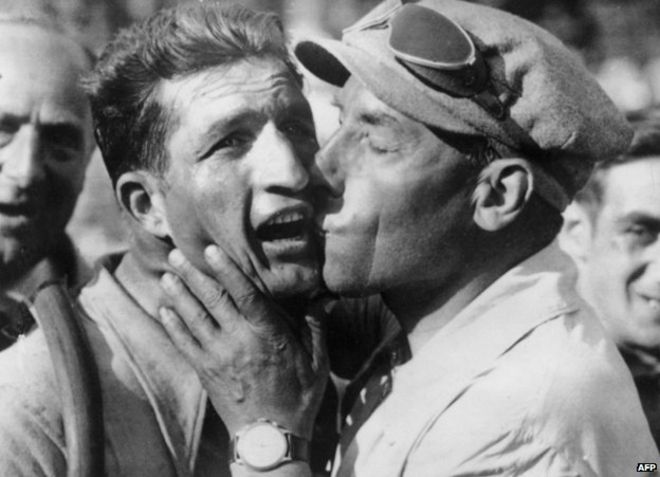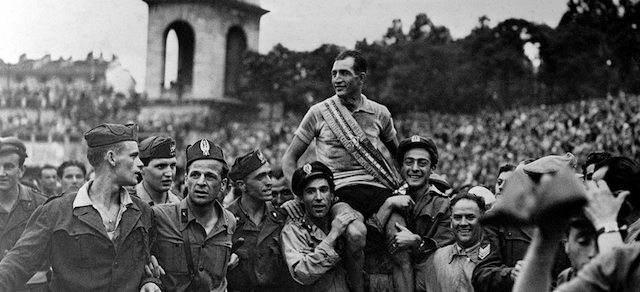"Good is something you do, not something you talk about. Some medals are pinned to your soul, not your jacket." (Gino Bartali)

Gino Bartali competing in the 1938 Tour de France courtesy
Gino Bartali was reaching the peak of his career when the Second World War broke out. The cyclist had three Giro d'Italia medals around his neck as well as one Tour de France trophy. When someone suggested that he dedicate the Tour de France victory to Italy's fascist dictator Mussolini, he refused. Bartali marched to the beat of his own drummer. By war's end, Bartali would be a hero once again, but for an entirely different reason.
Gino Bartali, a villager from a poor Tuscan family, took up cycling after being encouraged by his older brother. While the latter died tragically in a cycling accident, the former continued to race. A sickly and skinny child, Bartali worked on strengthening his body to endure the gruelling races through the Alps. In 1936, the cyclist cliched his first major victory, the Giro d'Italia, repeating the feat the following year.
Mussolini, like Hitler, had his own ideas about the master race, summed up in his Manifesto of Race published in 1938. That same year, he watched the 1938 Tour de France with interest, assuming that if an Italian won, the victory would just confirm his racial theory. Bartali did win the Tour, but refused to dedicate his victory to Mussolini, risking the possible wrath of the fascist dictator.

The Second World War, for all intents and purposes, put the Tour de France on hold. But Bartali continued to train in hopes of keeping his strength up. In 1943, when the alliance collapsed between Italy and Germany, the German army occupied the Northern and Central regions of Italy. The Wehrmacht started rounding up Italian Jews and putting them in concentration camps.
Bartali, a devout Catholic, was approached by the Florence priest who had married him and asked if he could help the plight of the Jews. Bartali agreed to become a courier, transporting forged documents to Jews in order to prevent them from being deported. The occupying forces would see the cyclist racing up and down the Alps and think that he was training for his next race. In the meantime, inside the handlebars of his bicycle, he carried vital documents that would save lives. If he were stopped and searched, he would always ask the soldier not to tamper with his bike, that it was set just the way it should be for his next race. The guard would let him continue on his journey, unaware that the cyclist's destination was a secret printing press. Bartali was questioned by the secret police at one point and had to go into hiding in Citta di Castello.
Bartali's son, Andrea, said that he rarely talked about the sacrifice he made to save Italy's Jews. "Good is something you do, not something you talk about," he explained matter of factly. "Some medals are pinned to your soul, not your jacket." Bartali's story has a denouement. In 1948, a full ten years after his first Tour de France victory, he won the title yet again. Today, Bartali still holds the record for the longest gap between Tour de France victories.

Gino Bartali wins Tour de France again in 1948 courtesy http://www.ilpost.it/2014/07/18/gino-bartali/.
No comments:
Post a Comment